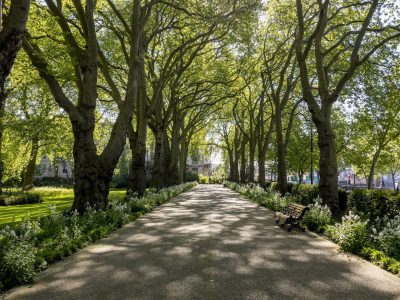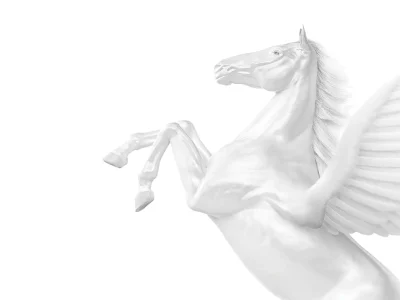
Celebrate the Lives
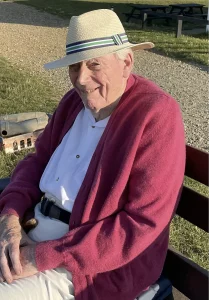
Sir Oliver Popplewell
15 August 1927–6 June 2024
Master Popplewell was born on 15 August 1927. After attending Charterhouse School as a scholar and Queens’ College, Cambridge as an exhibitioner, where he played first class cricket, he was called to the Bar in 1951, took silk in 1969 and was elected a Bencher of The Inner Temple in 1978. Between 1983–1999, he was a Judge of the High Court of Justice, Queen’s Bench Division. He chaired the inquiry into the Bradford City Stadium fire and presided over the libel case brought by Jonathan Aitken against The Guardian newspaper.
Master Popplewell became President of the Marylebone Cricket Club (MCC) in 1994, an office he held for two years, and was appointed Honorary Life Vice President in 2010.
In 2003, he read Philosophy, Politics and Economics at Harris Manchester College, Oxford, becoming one of the university’s most mature ‘mature’ students.
A prolific writer, his publications include: Benchmark: Life, Laughter and the Law, 2003; Hallmark: a Judge at Oxford, 2008; The Prime Minister and His Mistress, 2014; The Aphrodisiac of Power, 2016; A Fine Thing Chance, 2019; Munich: Why?, 2021, the last of which members of the Inn were lucky enough to hear him discuss in 2022 with Konrad Schiemann who described Master Popplewell as “an inexhaustible source of fun and stimulus”.
After the death of his first wife, Margaret, with whom he had five sons, he married Master Elizabeth Gloster.
A tremendously loyal supporter of the Inn, he regularly attended educational, social and cultural events at The Inner Temple. As recently as 20 May 2024, he attended a performance in Hall by the London Mozart Players, whose cello section includes his grandson, Leo.
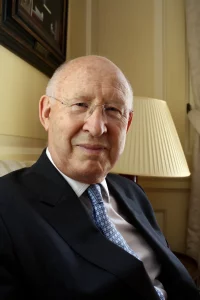
Sir Thomas Legg KCB KC
13 August 1935–8 October 2023
Master Legg was born in 1935, the son of Oscar winning documentary maker Stuart Legg and his wife Margaret, whose father was Sir Maurice Amos, a barrister and law professor. Due to his father’s work, Master Legg grew up in New York, returning to the UK to complete his education.
After National Service in the Royal Marines from 1953 to 1955, he read history and law at St John’s College, Cambridge under the military education system. He was called to the Bar by The Inner Temple in 1960 and joined the Lord Chancellor’s Department soon afterwards, serving as Permanent Secretary and Clerk of the Crown in Chancery from 1989 until 1998. In 1984, he was elected a Master of the Bench of The Inner Temple. He was appointed an Honorary Queen’s Counsel in 1990 and knighted in 1993.
Following retirement from the civil service in 1998, he was appointed to chair three key inquiries for the government: the inquiry into allegations that Sandline International was trying to sell arms in Sierra Leone, contravening an international embargo; a parliamentary inquiry into the overspend on Portcullis House; and between 2004 and 2008 as a member of the Audit Commission, to chair an independent panel examining claims relating to the second homes allowance.
In retirement, Master Legg was chair of the Imperial College Healthcare NHS Trust, chair of the London Library and a consultant to Clifford Chance law firm. He served on the council of Brunei University and was visitor from 2001 to 2006. He was awarded an honorary Doctor of Laws (LLD) in 2006.
He is survived by Elisabeth, his fourth wife, and two daughters.
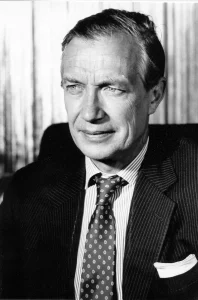
Sir Martin Jacomb
11 November 1929–8 June 2024
Following National Service with the Royal Artillery in Sri Lanka, Martin Jacomb read law at Worcester College, Oxford, and was called to the Bar by The Inner Temple in 1955. He practised as a barrister until 1968, building a successful practice in Chancery, specialising in tax and trust cases. He also defended the zookeeper and casino owner John Aspinall against a neighbouring farmer’s attempt to stop him keeping bears and tigers.
After thirteen years in practice, he embarked upon a successful career in business becoming Corporate Director of Finance at Kleinwort Benson Lonsdale (as it was then). From 1976 to 1985 he was Vice Chairman of Kleinwort and advised Margaret Thatcher’s government on the floatation of British Aerospace in 1981, and BT three years later. He was Deputy Chairman of Barclays Bank between 1985 and 1993. In 1985, he was knighted for services to the City, joining the Bank of England’s court the following year. In 1987, he was elected an Honorary Bencher of the Inn. In 1994, he joined Lord Nolan’s committee on standards in public life. For six years he chaired the British Council.
In 1998, he was appointed the third Chancellor of the University of Buckingham, retiring from the chancellorship in March 2010. He was also Chairman of the Canary Wharf Group from 2003–12.
He is survived by his wife Evelyn Heathcote Amory, whom he married in 1960. Together they had three children.
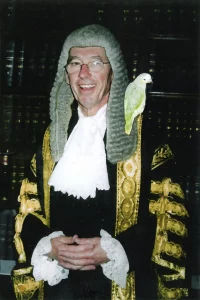
The Rt Hon Sir William Gage
22 April 1938–13 September 2023
Master William Gage, ‘Bill’ was called to the Bar by The Inner Temple in 1963 after completing National Service in the Irish Guards and then reading history and later, law, at Sidney Sussex College, Cambridge. He developed a common law practice of personal injury, landlord and tenant and crime at 2 Harcourt Buildings. He took silk in 1982 and was elected a Bencher of the Inn in 1991.
Among his most notable cases as a barrister was representing the chief marine superintendent of the Herald of Free Enterprise that capsized shortly after leaving Zeebrugge, Belgium in 1987. In 1993, Master William Gage was appointed a High Court Judge to the Queen’s Bench Division and was Presiding Judge on the Southeastern Circuit from 1997–2000. He became a Court of Appeal Judge and privy counsellor in 2004, sitting until 2008. He presided over the Jill Dando murder trial, one of the most-high profile criminal cases in modern times, and over the trial of Siôn Jenkins who was accused of killing his foster daughter Billy-Jo, a case that remains unsolved.
After his retirement from the Court of Appeal, he was appointed Chairman of the three-year long Baha Mousa Public Inquiry into alleged British Army brutality against Iraqi prisoners in Basra. In his report he wrote that it was, “… an appalling episode of serious, gratuitous violence on civilians which resulted in the death of one man and injuries to others…”
Bill and his wife Penna were married for 63 years, with three sons and four grandchildren. They travelled widely together in Australia, Canada, India, South America, and throughout Europe. Bill was a fine game shot and fisherman. Penna was an accomplished stalker and a formidable rider across country. Lady Gage recalls, “We had a lot of fun together and made a good team.”
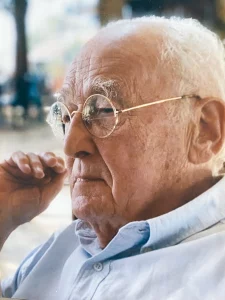
RICHARD Rampton KC
8 January 1941–23 December 2023
After reading Classics at Queen’s College, Oxford, Master Richard Rampton was called to the Bar in 1965 and joined One Brick Court where he worked for more than 50 years, becoming Head of Chambers in 2000. He took Silk in 1987.
A renowned British libel lawyer, he was involved in several high-profile cases, including Lord Aldington v Count Nikolai Tolstoy, Andrew Neil v Peregrine Worsthorne, Gillian Taylforth v News of the World, the ‘McLibel’ trial, and George Galloway v The Daily Telegraph. His most famous case was perhaps Irving v Penguin Books and Lipstadt, where he defended Deborah Lipstadt and Penguin Books against David Irving. He learned German in order to familiarise himself with the wartime texts. By extraordinary coincidence, the actor Tom Wilkinson, who portrayed him in the film of the trial Denial, died in the same week as Master Rampton.
Friend and colleague Jane Phillips recalls, “Richard was a Titan of the libel Bar, the famous cases he was involved in are far too numerous to mention. Immortalised on film in Denial for his role in defeating David Irving’s defamation case, he was not only the best of advocates, appealing to both judges and juries alike, but he was a great friend to all those lucky enough to work with him. As Head of 1 Brick Court, he led from the front, upholding the best traditions of the Bar whilst also being the kindest and most humane of men.”
Master Rampton was elected a Bencher of the Inn in 1995. He sat on and subsequently chaired the initial fit and proper screening panels for Admission and Call in the early 2000s. He is survived by Carolyn, whom he married in 1963, their three children and seven granddaughters.
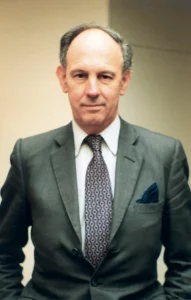
Thomas Baxendale
7 April 1947–15 June 2024
Born on 7 April 1947, the second of three brothers, Thomas Dawtry Baxendale was educated at Eton. He did National Service in the Welsh Guards and was called to the Bar by The Inner Temple in 1962. He did a first six pupillage in common law followed by a chancery pupillage at 24 Old Buildings Lincoln’s Inn, where he became a tenant and built up a practice specialising in trusts and probate. He was elected a Bencher in 1997.
He retired from the Bar in 2003 but was a regular in Hall where he would lunch every Wednesday with his friend, Edward Raw. His interests included horticulture, family genealogy, the arts and travel.
Master Baxendale was unmarried. He died suddenly of a heart attack at Chelsea and Westminster Hospital on Saturday 15 June at the age of 87.
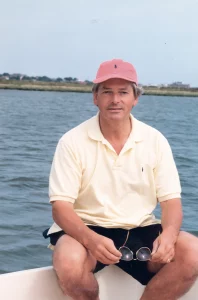
Dorian Lovell-Pank KC
15 March 1946–29 October 2023
Master Dorian Lovell-Pank was called to the Bar in 1971. He joined 6 King’s Bench Walk in 1972, where he defended in and prosecuted almost every kind of criminal case, from minor theft and assault to contract murder and large scale fraud. He sat as a Recorder from 1989 and took silk in 1993. Alongside his distinguished practice, Master Lovell-Pank was widely involved with the Bar Council, the Criminal Bar Association, the Foreign and Commonwealth Office and the British Council in programmes of judicial and legal reform and advocacy training of prosecutors and defence lawyers, particularly in Europe and Latin America. He was engaged by foreign governments to advise on the development of their criminal justice systems.
Master Lovell-Pank was elected a Bencher of the Inn in 1998. He was a leading advocacy trainer for the Inn, as well as for the United Nations in The Hague. He was committed to supporting the Inn’s activities, including attending Qualifying Sessions and calling students to the Bar. He served at various times as a member of the Advocacy Training, Bencher Nomination and International Committees.

Sir Nicholas Stadlen
3 May 1950–5 October 2023
Master Nicholas Stadlen was born in Hampstead in 1950, the son of former concert pianist and music critic Peter Stadlen, who had premiered several works of Anton Webern before escaping Vienna in 1938. His mother, Hedi, who had also fled Austria, was one of the earliest women students to study moral sciences at Cambridge.
After reading history and classics at Trinity College, where he was President of the Union, he worked with Lord Longford in 1972 to establish the British Irish Association, a cultural organisation dedicated to promoting good relations between the governments and peoples of the UK and Ireland.
Funding his studies by writing papers for the Gulbenkian Foundation, he was called to the Bar by The Inner Temple in 1976 after coming top in the Bar exams. He joined Fountain Court Chambers and developed a highly successful commercial practice. He took Silk In 1991 the same year that the Bank of Credit and Commerce International (BCCI) collapsed into liquidation. He was first instructed to represent the Bank of England in relation to BCCI and then led the Bank’s defence of the claim brought by BCCI’s liquidators. It became one of the longest Commercial Court trials, lasting 256 days in court in 2004 and 2005. Master Stadlen’s opening speech was delivered over a record-breaking 119 days.
He was appointed to the High Court’s Queen’s Bench Division on 2 October 2007, after taking a ‘gap year’ to create a series of podcast interviews with well-known figures – Gerry Adams, Desmond Tutu, F W de Klerk, Simon Peres, Hanan Ashrawi, David Blunkett and Tony Benn.
On retirement from the Bench in 2013, Master Stadlen researched the history of anti-apartheid struggle in South Africa, interviewing five survivors from among Nelson Mandela’s co-defendants and legal team at the Rivonia trial of 1963–64 for a documentary film he wrote, directed and produced, Life is Wonderful: Mandela’s Unsung Heroes, released in 2018. He was posthumously awarded a National Order of South Africa.
Master Stadlen is survived by his wife, Frances, whom he married in 1972 and by their three sons.
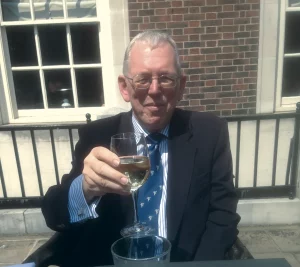
His Honour John Wait
19 September 1949–8 August 2024
Behind Master John Wait’s modest and self-effacing manner was a man of integrity, principle and generosity. His priority was his family – his wife Tricia, their sons Nick and Joe and latterly their three grandsons – but his friends and his career in the law came an equal close second.
Practising on the Midland and Oxford Circuit from 1, Fountain Court, Birmingham he achieved a high level of expertise in both criminal and civil law and became much in demand. When ready to take Silk, he was encouraged to apply instead for the Circuit Bench and did so. This was a real loss to the Bar but brought about a resoundingly successful judicial career.
Whether as Resident Judge of Derby (2000–2008) or as co-director of the Criminal Induction Course (2008–13) his erudition, industry and genuine wish to help anyone who needed it brought him great respect and affection. He also employed his deep understanding of criminal law and practice to co-write both the Crown Court Companion (2011 and 2012) – which he dubbed ‘The Nutshell’ – and the Crown Court Compendium (2016).
As a judge Master Wait was patient and scrupulously fair but also rigorous and unafraid of taking tough decisions. In due time he became one of the, then few, circuit judges chosen to sit part time in the Court of Appeal Criminal Division. As a colleague, teacher and mentor he actively enjoyed sharing his immense fund of knowledge, experience and wisdom. As a Bencher (2011) he served on the Inn’s Outreach Committee. As a friend he was unfailingly loyal and supportive. He was good fun too.
Away from the law, John Wait was a keen sportsman (cricket, football, golf, rugby, skiing, squash, windsurfing) and a truly delightful companion.
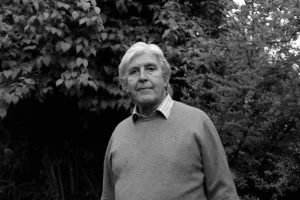
Richard Benson KC
20 February 1946–4 November 2023
Master Richard Benson died on Saturday 4 November 2023, aged 77.
Master Benson was called to the Bar in 1974. He practised from Cornwall Street chambers in London and Birmingham specialising in defending criminal cases, particularly murder, manslaughter, serious sexual offences, and fraud. He took Silk in 1995 and sat as a Recorder of the Crown Court from 1995 until his retirement in 2018. He was a Visiting Fellow of Oxford Brookes University where, pro bono, he lectured and conducted workshops in criminal evidence in addition to delivering advocacy training and providing mentoring for students.
Master Benson was elected as a Bencher of the Inn in 2013. He served as Assistant Master of the Midland Circuit for several years and was very involved in supporting circuit activities. He is survived by his widow, Alison, and twin sons.
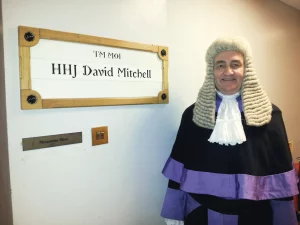
His Honour David Mitchell
4 May 1950–6 June 2024
Master David Mitchell was a northern grammar schoolboy from Bradford who was proud to achieve a place at St Catherine’s College, Oxford. There he studied the law which would be his lifetime career and one he adored. After being called to the Bar by The Inner Temple in 1972, Master Mitchell became a successful barrister in Bradford, working hard but making plenty of time for his family and friends. From raucous times skiing to weekends in The Lake District, he was always in the middle of things. And usually with good wine and good food to ease things along – apart from when he was watching his beloved Huddersfield Town.
A family move to London meant he eventually achieved his long held goal to become a judge, something which his family were immensely proud of. Master Mitchell was appointed as a Recorder in 1993; a Circuit Judge in 2001; as Designated Civil Judge for Kent in 2003; and then as Designated Civil Judge for London in 2007.
In later life the skiing took a bit of a back seat, but he indulged in that most mid-life man pursuit of cycling, which he attacked with his usual level of enthusiasm, buying all of the gear. He never lost his love of France and usually spent holidays there with a variety of his friends.
He was a huge supporter of education in all forms and so he was truly honoured to become a Judicial Governing Bencher in 2014, a role he undertook with dedication and delight. He also particularly looked forward to The Inner Temple carol service at Temple Church, as well as the garden parties in the summer.
He was a man who believed in fairness at all costs and lived his life according to that abiding principle.
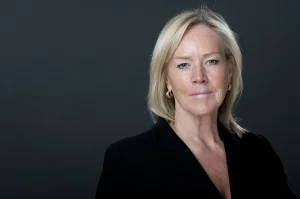
The Hon Mrs Justice Roberts DBE
3 March 1953–10 June 2024
Master Jennifer Roberts died at 5am on Monday 10 June at the Royal Marsden Hospital, where she had been undergoing treatment for cancer.
After a brief early career modelling and working for Island Records in London, Jenny, as she was universally known, studied law at Southampton University and was called to the Bar in July 1988, when her young daughters were at school. Her progress thereafter was meteoric, and she quickly developed a stellar family money practice. She was appointed Queen’s Counsel in 2009 and, in July 2014, she was elected a Bencher on her appointment as Justice of the High Court assigned to the Family Division.
Respected for her fairness, she presided over several high-profile matrimonial disputes and difficult ‘right-to-die’ cases.
In 2014, she tried the biggest matrimonial finance case ever to come before the courts in England, Cooper-Hohn v Hohn with $1.5 billion (£870 million) worth of assets for distribution. At the time, few knew that just having been diagnosed with breast cancer at the start of the case, Jenny declined starting treatment until she had concluded hearing the case.
From 2017–18, Master Jennifer Roberts served on the Education & Training Committee. She was appointed a Family Division Liaison Judge in 2018, a role she continued until 2022. In September 2023, she was diagnosed with terminal cancer, but continued working until the end. Her husband, Richard, died in 2004; she leaves two daughters, Sophie and Melanie, and six much loved grandchildren.
